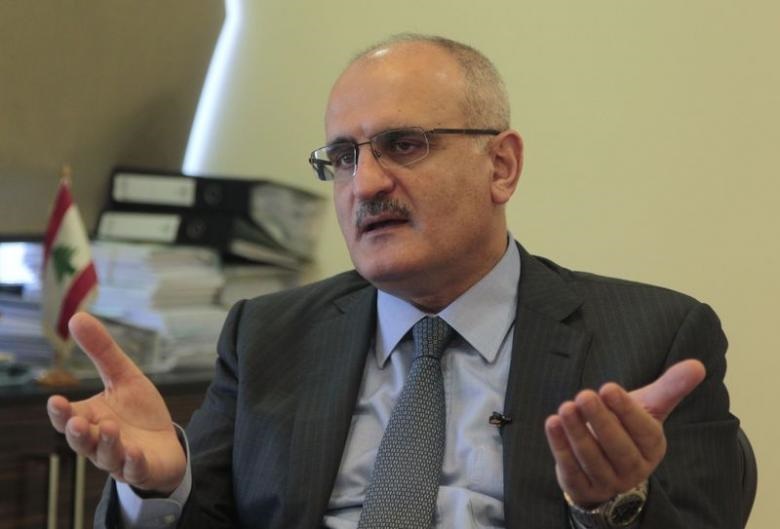Beirut – Finance Minister Ali Hassan Khalil said on Thursday that the government aims to curb the 2017 budget deficit from 9.3 percent in 2016 down to 8.7 percent of gross domestic product (GDP).
Khalil projected government expenditures at LL23.67 trillion ($15.7 billion) in 2017 and revenues at LL16.384 trillion ($10.9 billion).
The projected growth rate will stand at 2 percent, which is still low and needs further measures to improve it, said Khalil during his news conference on Thursday.
Approving the state budget was a major goal to the government, headed by Prime Minister Saad Hariri, as a part of a political deal that led Michel Aoun to the presidency. For 12 years, the government failed to agree over a budget due to political disputes after the assassination of former Prime Minister Rafik Hariri in 2005.
A report issued by the International Monetary Fund (IMF) warned in January that Lebanon needs “a balanced and sustainable financial amendment”, otherwise the burden of public debts will aggravate.
“We will allocate LL337 billion for infrastructure projects and equipment for the Army. We will also allocate additional LL100 billion for the Energy Ministry and LL100 billion for the Public Works Ministry,” Lebanese Finance Minister added.
Khalil noted that the Finance Ministry has also prepared a draft law to develop and expand the landline network by allocating LL225 billion for this purpose.
He added that the ministry has tried to curb in the new budget the squandering taking place in public departments and ministries.
“We have reduced our spending on consumables in these places by 20 percent,” he said.
The Lebanese Parliament, earlier this month, approved a hike in taxes and imposed new taxes which lead to protests.
